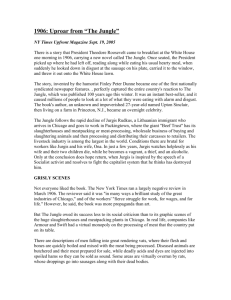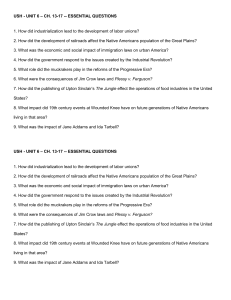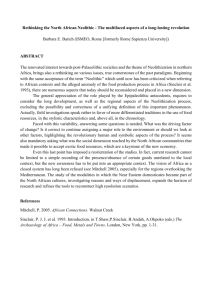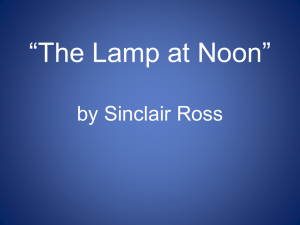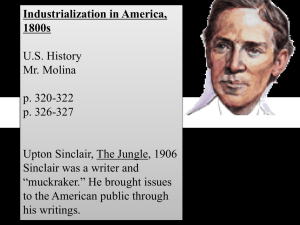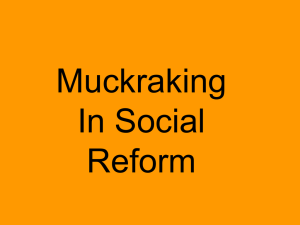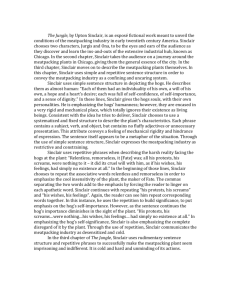Upton Sinclair
advertisement
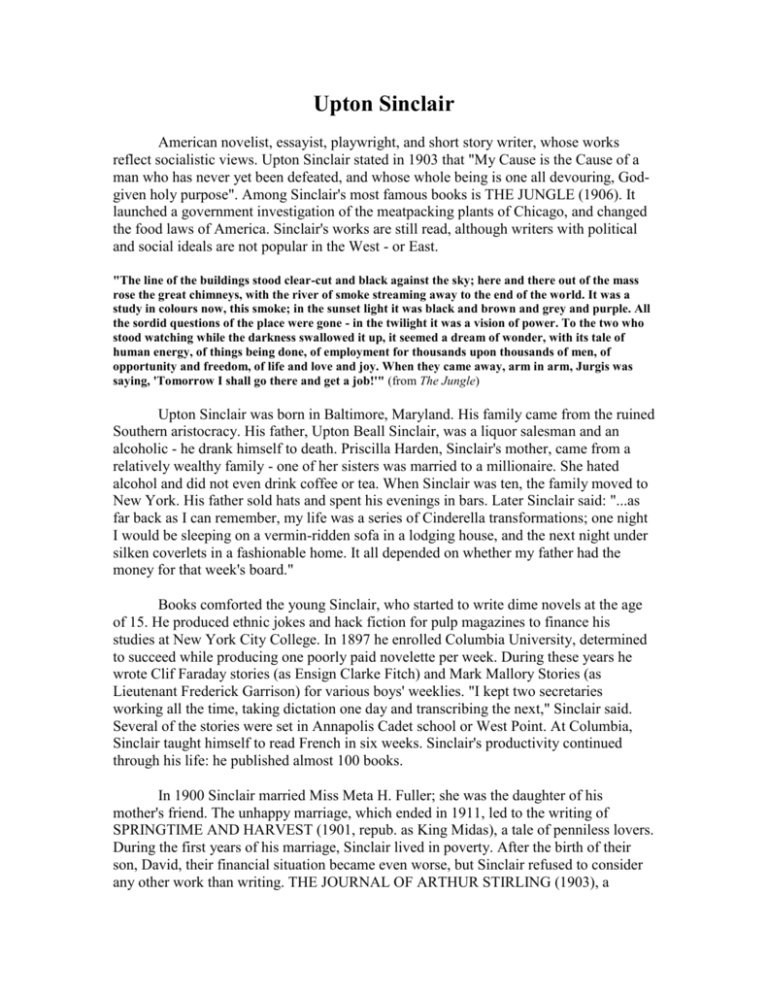
Upton Sinclair American novelist, essayist, playwright, and short story writer, whose works reflect socialistic views. Upton Sinclair stated in 1903 that "My Cause is the Cause of a man who has never yet been defeated, and whose whole being is one all devouring, Godgiven holy purpose". Among Sinclair's most famous books is THE JUNGLE (1906). It launched a government investigation of the meatpacking plants of Chicago, and changed the food laws of America. Sinclair's works are still read, although writers with political and social ideals are not popular in the West - or East. "The line of the buildings stood clear-cut and black against the sky; here and there out of the mass rose the great chimneys, with the river of smoke streaming away to the end of the world. It was a study in colours now, this smoke; in the sunset light it was black and brown and grey and purple. All the sordid questions of the place were gone - in the twilight it was a vision of power. To the two who stood watching while the darkness swallowed it up, it seemed a dream of wonder, with its tale of human energy, of things being done, of employment for thousands upon thousands of men, of opportunity and freedom, of life and love and joy. When they came away, arm in arm, Jurgis was saying, 'Tomorrow I shall go there and get a job!'" (from The Jungle) Upton Sinclair was born in Baltimore, Maryland. His family came from the ruined Southern aristocracy. His father, Upton Beall Sinclair, was a liquor salesman and an alcoholic - he drank himself to death. Priscilla Harden, Sinclair's mother, came from a relatively wealthy family - one of her sisters was married to a millionaire. She hated alcohol and did not even drink coffee or tea. When Sinclair was ten, the family moved to New York. His father sold hats and spent his evenings in bars. Later Sinclair said: "...as far back as I can remember, my life was a series of Cinderella transformations; one night I would be sleeping on a vermin-ridden sofa in a lodging house, and the next night under silken coverlets in a fashionable home. It all depended on whether my father had the money for that week's board." Books comforted the young Sinclair, who started to write dime novels at the age of 15. He produced ethnic jokes and hack fiction for pulp magazines to finance his studies at New York City College. In 1897 he enrolled Columbia University, determined to succeed while producing one poorly paid novelette per week. During these years he wrote Clif Faraday stories (as Ensign Clarke Fitch) and Mark Mallory Stories (as Lieutenant Frederick Garrison) for various boys' weeklies. "I kept two secretaries working all the time, taking dictation one day and transcribing the next," Sinclair said. Several of the stories were set in Annapolis Cadet school or West Point. At Columbia, Sinclair taught himself to read French in six weeks. Sinclair's productivity continued through his life: he published almost 100 books. In 1900 Sinclair married Miss Meta H. Fuller; she was the daughter of his mother's friend. The unhappy marriage, which ended in 1911, led to the writing of SPRINGTIME AND HARVEST (1901, repub. as King Midas), a tale of penniless lovers. During the first years of his marriage, Sinclair lived in poverty. After the birth of their son, David, their financial situation became even worse, but Sinclair refused to consider any other work than writing. THE JOURNAL OF ARTHUR STIRLING (1903), a fictional portrait of a failed poet, arose first much attention. It was based on Sinclair's experiences as a scorned writer. By 1904 Sinclair was moving toward a realistic fiction. He read Socialist classics and became a regular reader of the Appeal to Reason, a socialist-populist weekly. However, Sinclair was never an advocate of Communism, but he was frequently pictured as a violent revolutionary. In 1934 he left permanently the Socialist Party. Financially helped George D. Herron, who was a journalist and a former priest, Sinclair started to write a trilogy about the American Civil War. MANASSAS, the first part, appeared in 1904. The protagonist is a young Southern man, Allan Montague, who joins the Union army and is involved in the Battle at Manassas. Sinclair did not continue with the other parts. The book did not sell well although it received favorable critics. As a writer Sinclair gained fame in 1906 with the novel The Jungle, a report on the dirty conditions in the Chicago meat-packing industry. Jurgis Rudkus, the protagonist, is a young Lithuanian immigrant. He arrives in America dreaming of wealth, freedom, and opportunity. Jurgis finds work from the flourishing, filthy Chicago stockyards. First he likes his work, and is astonished when his comrades hate it. "He had the feeling that this whole huge establishment had taken him under its protection, and had become responsible for his welfare. So guileless was he, and ignorant of the nature of business, that he did not even realize that he had become an employee of Brown's, and that Brown and Durham were supposed by all the world to be deadly rivals--were even required to be deadly rivals by the law of the land, and ordered to try to ruin each other under penalty of fine and imprisonment!" Gradually Jurgis' optimistic world vision fade in the hopeless "wage-slavery" and in the chaos of urban life. He loses his wife, who has been raped by a foreman, and their second child. Jurgis becomes a criminal and then a Socialist. The book won Sinclair fame and fortune, and led to the implementation of the Pure Food and Drug Act in 1906. It had the deepest social impact since Harriet Beecher Stowe's Uncle Tom's Cabin. President Theodore Roosevelt received 100 letters a day demanding reforms in the meat industry and Sinclair was called to the White House. The proceeds of the book enabled Sinclair to establish and support the socialist commune Helicon Home Colony in Englewood, N.J. William James and John Dewey visited the place, and also the aspiring writer Sinclair Lewis. However, the commune for left-wing writers burnt down after a year in 1907. Sinclair was again penniless. Suffering from stomach problems, Sinclair started to follow the teachings of Bernarr Macfadden, and developed a lifelong intrest in nutritional oddities.

